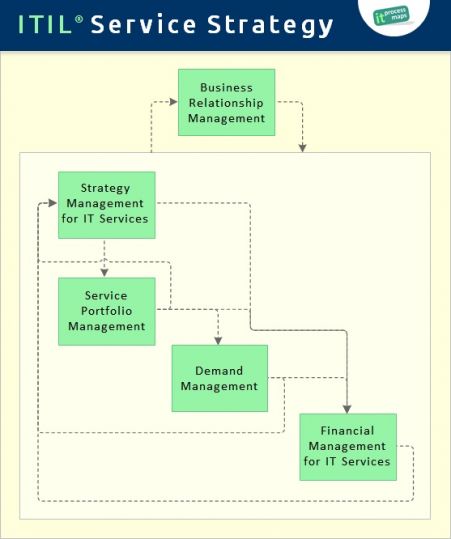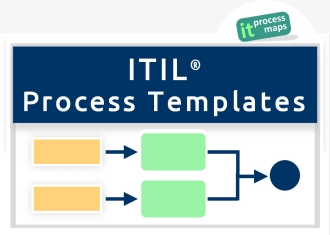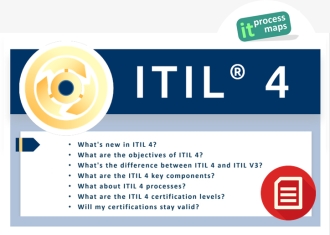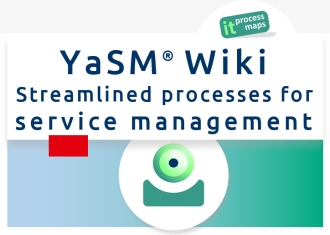ITIL Service Strategy


Objective: The objective of ITIL Service Strategy is to decide on a strategy to serve customers. Starting from an assessment of customer needs and the market place, the Service Strategy lifecycle stage determines which services the IT organization is to offer and what capabilities need to be developed. Its ultimate goal is to make the IT organization think and act in a strategic manner.
Part of: IT Service Management | ITIL processes
Processes: ITIL Service Strategy

Service Strategy determines which types of services should be offered to which customers or markets.
The ITIL service lifecycle stage of Service Strategy includes the following main processes:
- Strategy Management for IT Services
- Process Objective: To assess the service provider's offerings, capabilities, competitors as well as current and potential market spaces in order to develop a strategy to serve customers. Once the strategy has been defined, Strategy Management for IT Services is also responsible for ensuring the implementation of the strategy.
- Service Portfolio Management
- Process Objective: To manage the service portfolio. Service Portfolio Management ensures that the service provider has the right mix of services to meet required business outcomes at an appropriate level of investment.
- Financial Management for IT Services
- Process Objective: To manage the service provider's budgeting, accounting and charging requirements.
- Demand Management
- Process Objective: To understand, anticipate and influence customer demand for services. Demand Management works with Capacity Management to ensure that the service provider has sufficient capacity to meet the required demand.
- Business Relationship Management
- Process Objective: To maintain a positive relationship with customers. Business Relationship Management identifies the needs of existing and potential customers and ensures that appropriate services are developed to meet those needs.
KPIs | Templates | Roles
- KPIs for Service Strategy
- Service Strategy templates and checklists
- ITIL roles within Service Strategy
Downloads
|
Use the following links to open the process overview of Service Strategy showing the most important interfaces: |
 |
Notes
By: Stefan Kempter ![]() , IT Process Maps.
, IT Process Maps.
Strategy Mgmt. › Service Portfolio Mgmt. › Financial Mgmt. › Demand Mgmt. › Business Relationship Mgmt.






